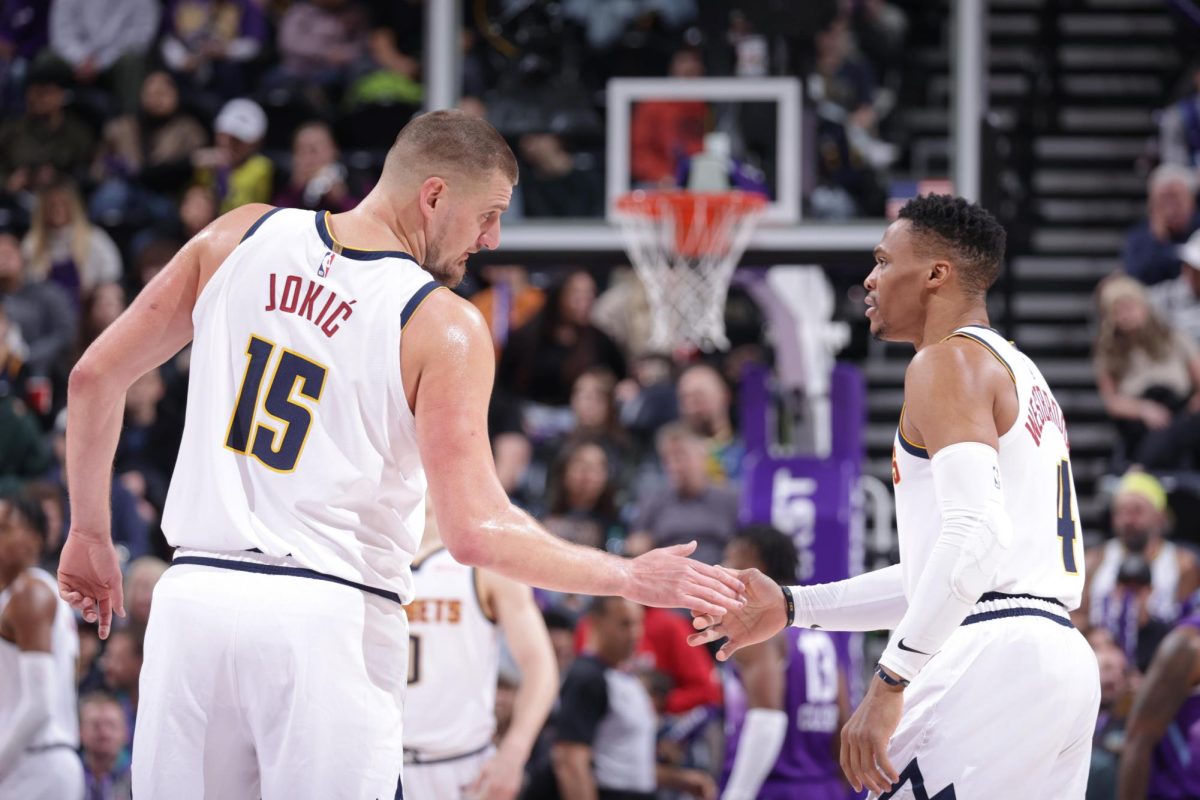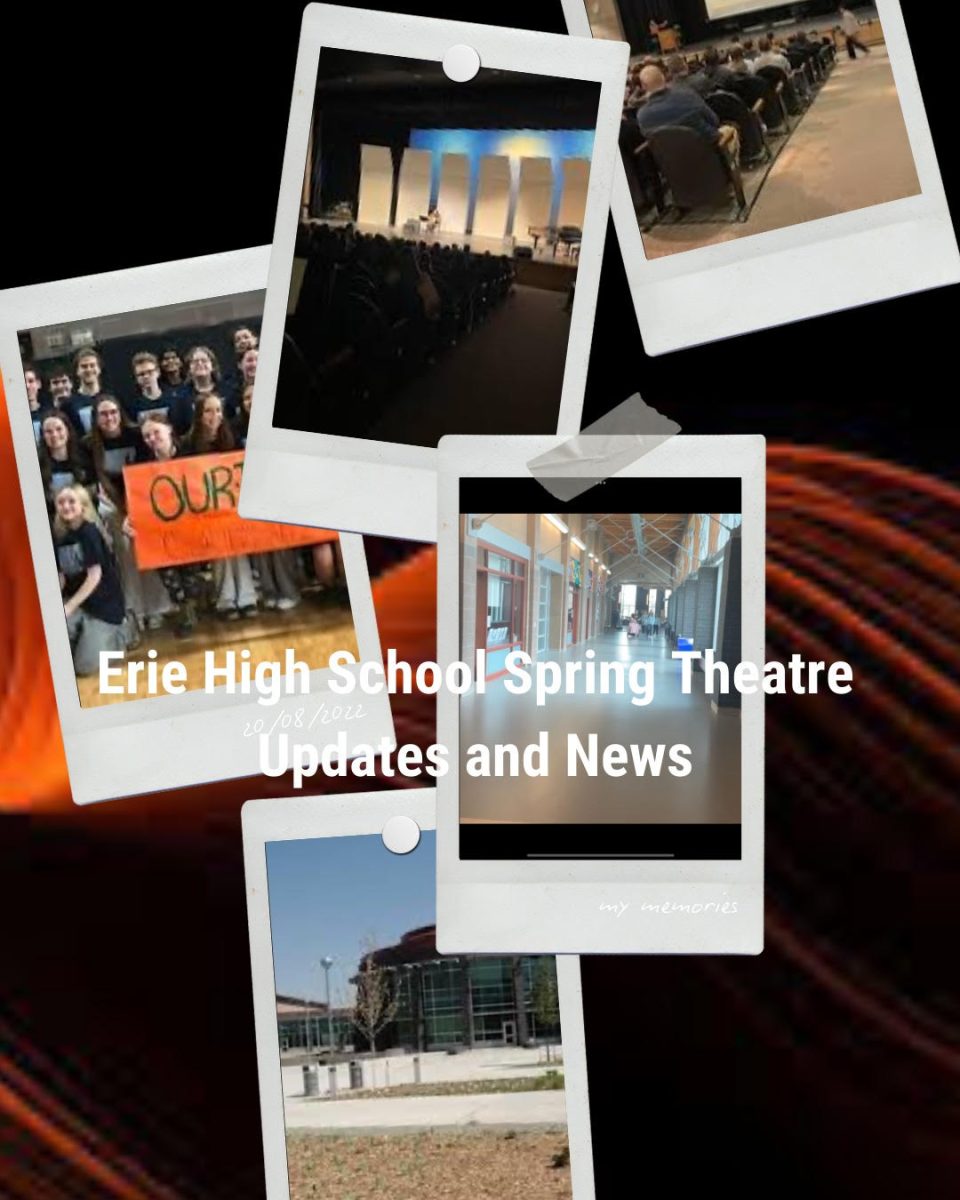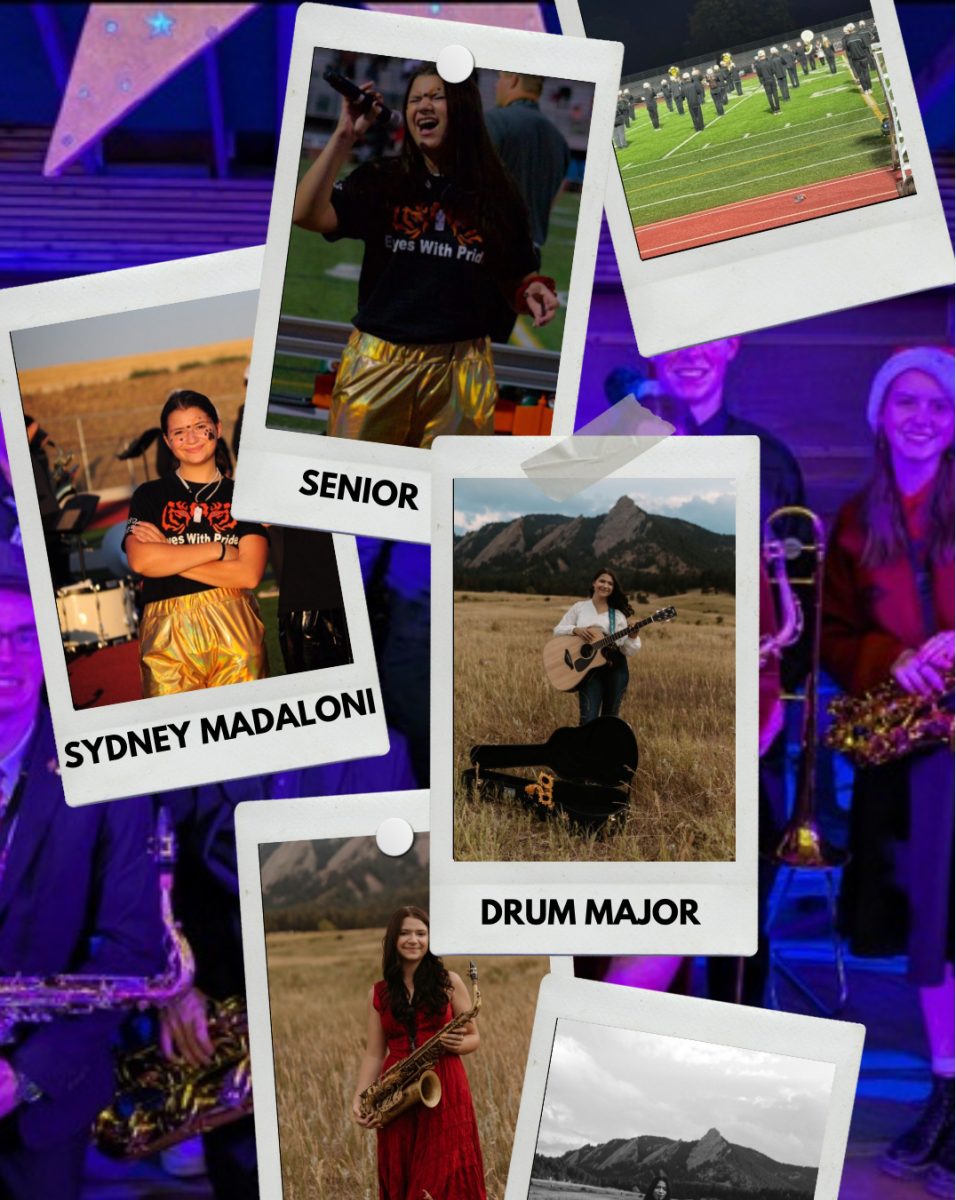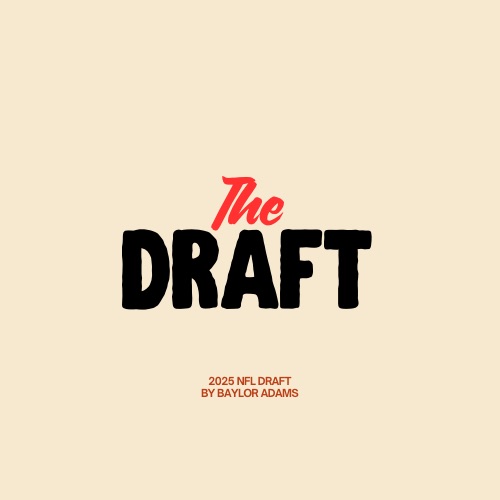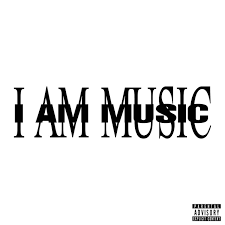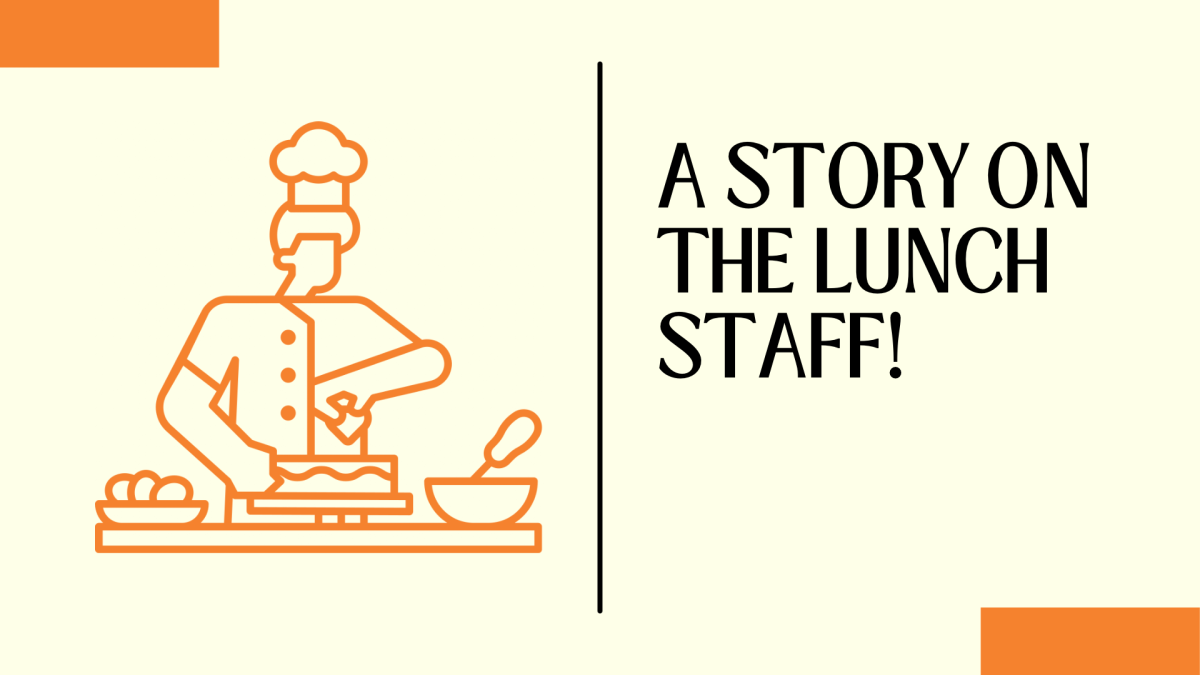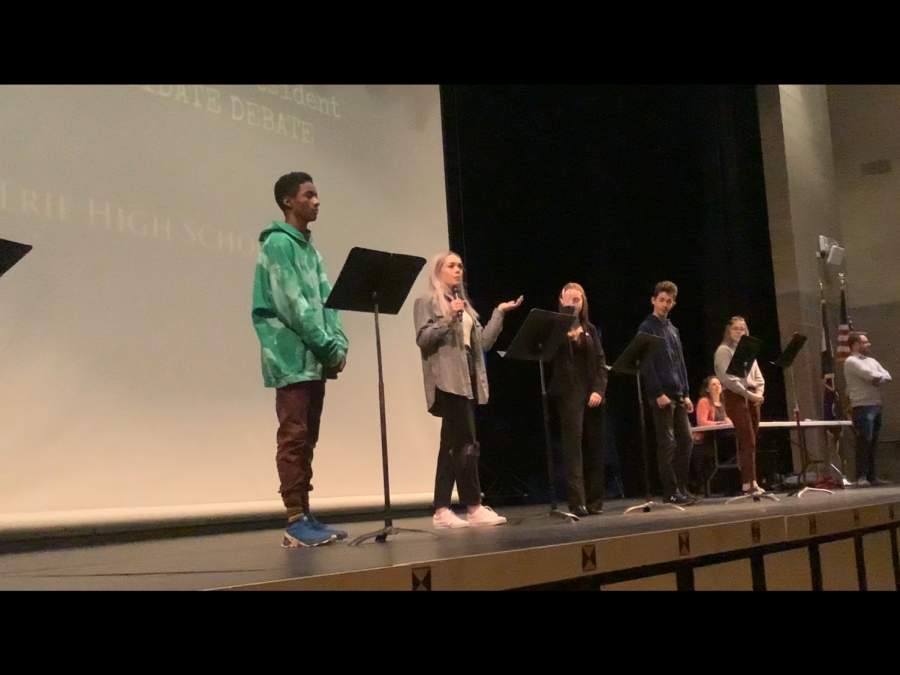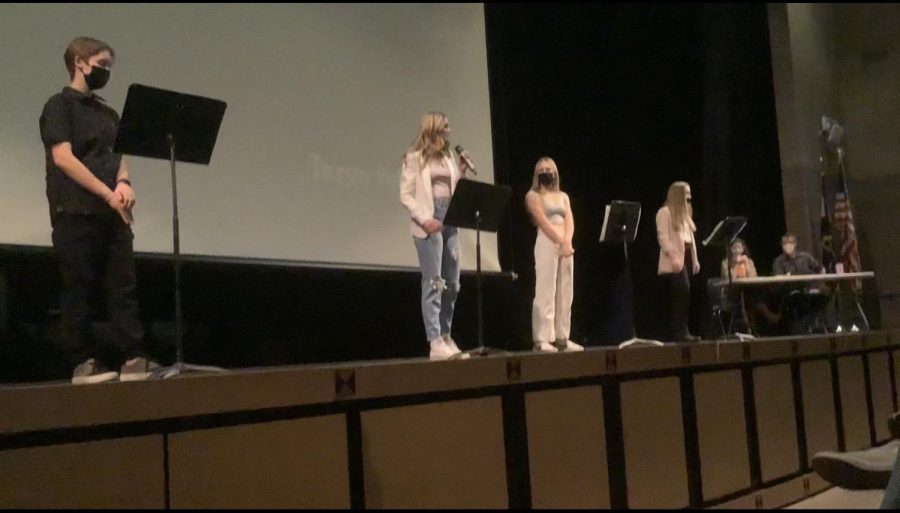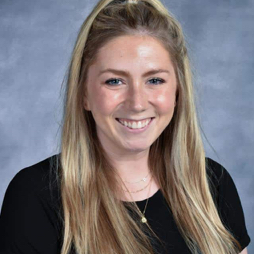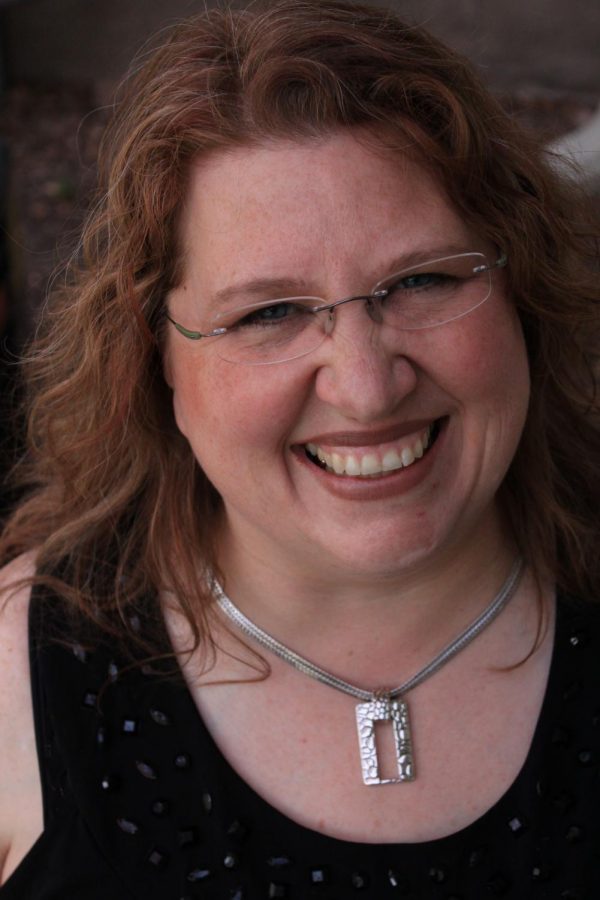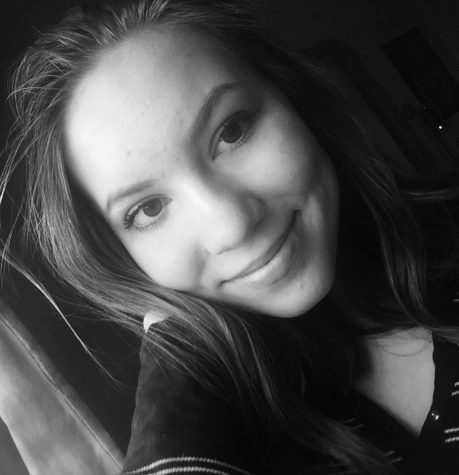Heather Hall: A Memoir
From living in a small town in Alberta, Canada to becoming a successful musician of Erie, Colorado, Heather Hall’s story is legendary to all who wish to be musicians.
December 15, 2017
Heather grew up in a small town in Alberta named Raymond. This town is nowhere near anything, and the only way to get there is to drive between two major highways. Her high school was very small as well; there were only about 250 students total in her high school and only around 60-70 students in her graduating class.
Since Heather Hall was young, she has had a passion for music. She took lessons from a high schooler in her area named Kathy. (Kathy went on to become a nurse but is now back to teaching piano. Heather and Kathy are still good friends who talk to each other often.) Her mother often got her to practice piano by offering a deal: she would wash the dishes if Heather practiced her songs and played a “concert” for her.. It was a win-win situation for the both of them; her mother liked to wash dishes and listen to her daughter play, and Heather hated doing the dishes but enjoyed practicing her latest piano pieces.
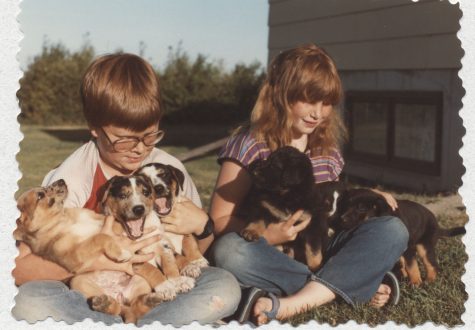
Throughout elementary and high school, she took music lessons. She became more and more passionate about piano and her music. She picked up instruments here and there; she played percussion in 6th grade band and played saxophone later on. She gave up on percussion because she found it easy and got bored of it; however, she stuck with the saxophone for a while, and she enjoyed it. She did saxophone and piano for the pit orchestra in her community; she did some musicals such as “Fiddler on the Roof”, “Paint Your Wagon”, and “My Fair Lady”.
However, the piano was her most creative outlet. It also was a way for her to relieve her stress. She was able to sit down at the piano and just play. When she got home from school, she would play piano until she felt better. Her mother described it as a furious storm, and when Heather got home, she would play and play and play until slowly it mellowed out. When the playing got less urgent and more quiet, that’s when her mother knew that it was okay to talk to Heather. Afterward, she would have a snack and do her homework.
It was clear to all who knew her that Heather was a very gifted musician. By the age of 14, she was playing the piano for her church. At the age of 12, she had started teaching a handful of students; by 14, she was a fully official piano teacher with around 20 students by the time she graduated high school. It was a nice extra income for her in her early years before college.
Heather first started performing when she was younger in her piano studio recitals. Her teachers often encouraged her to perform in festivals and concerts here and there in the area. At the age of 11 or 12, her aunt got her into real performing. Her aunt was a singer and she needed someone to accompany her. Heather accepted, but the first few times they performed together were rough. Heather made mistakes due to not enough practice performing. However, her aunt got her to keep performing with her, and eventually she got better and better. Her aunt realized that if she kept encouraging Heather to persevere, then eventually, she would get really good at performing. She would say things like “you did fine!” or “you’ll do better next time!” and it worked. Heather eventually got to the point where she wasn’t nervous to do shows anymore. Heather’s aunt helped her to gain her confidence.
In addition, she also had a passion for singing. She was in her town choir until they asked her to accompany them on the piano. She wanted to sing more than play piano, but they needed an accompanist a lot more than they needed another voice. She would also accompany for a group of friends she had. She would play the piano while they all sang and harmonized, and they would perform around the town or at church activities.
Heather also took part in other music programs growing up. She participated in the Royal Conservatory of Music Program. There were different locations throughout Canada and some parts of the United States. There were also different testing centers, and there was one located about 20 minutes away from where Heather lived. There were two testing sessions – one in May and one in December. Heather would train for one each year and go perform to be tested. The students being tested would be given a grade. There would be adjudicators sent out from Toronto. They were very qualified to be grading the students – they would spend 6 to 8 weeks in Toronto training and then they were sent out throughout Canada and the United States to grade the piano students. This stressful program gave Heather a lot of experience. It was such a serious test that some students would be taken out of school to be tested. Heather says that it really helped prepare her to play and perform in college.
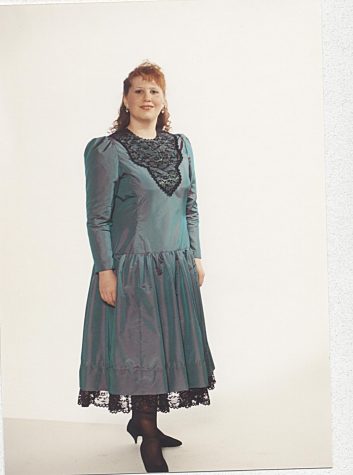
When Heather was only 14, she knew for sure that she wanted to be a musician. However, she didn’t really understand what it truly meant to be a music major. In high school she was practicing playing the piano about 2 hours a day; she would get up early and play for one hour before school started, and in the evenings, she would practice for another hour after doing homework and teaching piano lessons. Heather remembers sitting down with her mother and discussing what she wanted to do with her life. Her mom wanted her to become a teacher, but of course, Heather wanted to be a music major. She had two choices: she could attend the University of Alberta in Edmonton or she could go to Brigham Young University, which is in Provo, Utah. If she went to Edmonton she would be majoring in teaching, but if she went to BYU she would be majoring in music (she really wanted to go to the states during college to explore, but it wouldn’t be helpful if she ended up majoring in teaching but then having to learn Canada’s program). In the end, she decided on going to Brigham Young University and majoring in music: specifically piano performance and pedagogy. (At the time, this was a fairly new degree. There used to be three majors: Piano Performance, Pedagogy, and Piano Education. Pedagogy was a piano teaching degree. This combined Performance and Pedagogy.)
When she auditioned for the BYU music program, she had two options: she could audition by taping herself and then sending it to BYU or she could go in person to audition. She chose the former and was accepted into the music program (she had good grades and got an academic scholarship), but not to be an official music major. However, she could still audition in August before school started up again to obtain the major she desired. She did and she got in. Heather said that this was a valuable lesson for her: if she had gotten in using the tape, then she wouldn’t have practiced all summer. But because there was a big, looming audition ahead of her, she practiced all summer. After she auditioned, she was told to come back the next day to find out whether she got it. The professor brought the students into his room to break the news, and Heather was growing more and more nervous as she neared the door. She found out that she got in, though. The relief soon turned into an overwhelming sensation. The professors were very serious about how much work their students put into their practice – they expected four to eight hours of practice a day. The professor took out a box full of very difficult music. He pulled out a book, handed it to Heather, and told her to practice. The professors didn’t want to even see their students perform a piece until it was memorized, however. That week, she practiced harder and more than she ever had in her life. Somehow, she was able to memorize it in a week. Heather was very proud of herself, but she was unsure whether her teacher would be. She was worried that she had just accomplished this huge thing but that the teacher would think nothing of it because that was just what was expected of students. When Heather performed it a week later, her teacher told her that she shouldn’t worry because she would do just fine. He told her that he was very impressed that she was able to memorize and make a piece performable in only a week. She immediately felt so relieved.
Needless to say, college was exhausting for Heather. She thought it was a lot to be practicing two hours a day in high school, so the transfer between highschool and college was a big transition for her. Once, she described the rigor of being a music major, and he said it sounded like training to be an Olympic athlete. All of the hard work and laborious hours that went into being a music major was definitely as strenuous and difficult as being an athlete on the Olympic level. She never got a break – even on holidays and school breaks. If she didn’t practice, she wouldn’t know how to play it anymore and would lose her memorization. When she went home for Christmas break, she couldn’t even practice on her own house piano because it couldn’t keep up with her fingers, so she had to practice on the grand piano at her church. On Christmas, she practiced at the church for two hours because she just couldn’t take a break.
Heather said, “When you study that intensely, it’s not just that you’re a musician, it’s like every cell, every neutron in your body is tuned a certain way, and it changes the patterns of how your brain works, it changes how you interact with people, it changes the friendships that you form.” Heather’s college schedule was insanely busy. She was lucky if she got 6 hours of sleep at night; she usually got around 4-5. She truly ate, lived, and breathed piano and music. One of her friend’s dad was a professor at the university, so she had a good parking spot that was just a couple of steps away from the building entrance. Her friend would pick Heather and their friends up from their apartments and go to the building at 6:00 a.m. when the doors opened. They would practice for about 2 or 3 hours in the morning, depending on when their first class was. They would practice between classes and during part of lunch after they ate. After dinner, they would go to concerts. There were three times for concerts: 6:00, 7:30, and 9:00. Depending on who they knew in each concert, they would attend one or two of them each night, sometimes all three concerts during the busy season, but that was pretty rare. After the concerts, Heather would go to the practice rooms until 11:00 p.m. when they kicked her out. Then she would go to the library to check out books, study, or do homework. When she was kicked out at midnight, she’d walk home, and that long cycle continued six days a week, all of her college career she spent getting her bachelor’s degree. Heather, looking back on it, said, “It’s a tough life, being in music school.”
On Sundays, the practice rooms weren’t open; since BYU is a religious school, they pushed resting and spirituality on Sundays. But since Heather was in the rigorous music program, she desperately needed to practice every single day because she could potentially lose skill without practice. Luckily, one of her professors thought she was a good student, so she was able to get a key to his room. Using the key, she would sneak in on Sundays to practice on the piano in his room. If she’d ever gotten caught, she could’ve been in serious trouble. She learned when the security would come and check the doors at night. At that time, instead of playing, she would play Minesweeper on her professor’s computer until they were done and had left. Then she would play piano until she was done and walk home. Sometimes she even slept under the piano and started playing again in the morning.
By her junior year, Heather was practicing 6 hours a day (she would practice instead of going to classes sometimes, which led to her ending with a C in one class). Through all of the hard work, she says it was worth it. She would do it again in a heartbeat if she physically could. She still can’t get enough of playing. Heather said, “You get to pick the fun projects, the really hard stuff, and you get to pull it apart a million different ways and put it back together.”
However, all that playing came at a price. After she finished her Master’s degree in Piano Performance and Pedagogy at the University of Oklahoma in Norman, she developed Carpal Tunnel and Tennis Elbow. Her master’s degree was absolutely grueling. The way she practiced was wrong, which led to her injuries. Heather and her teacher were not compatible. She gave Heather a lot of assignments that she didn’t not want to do. Between the stress of getting her master’s degree and the struggling personal relationship with her teacher, Heather was not doing well.
After she got her master’s, she had almost no desire to play at all. She got a job as an instructional designer at AOL call center. She was actually able to use her teaching skills to become a trainer for newly hired people. The next time she thought about playing was when she saw her digital piano sitting in her apartment and she thought, “oh, I miss you.” She eventually started playing again four months later. She says that it was as if a wall had been built, and when she started playing again, it got knocked down. “It was as if a piece of me that I didn’t know had been gone came back.”
Later on, her then husband had been planning on making a major job change to Colorado. Heather also knew that she wanted to start a family soon. At her job at AOL, she was travelling 75% of the time, and she knew she couldn’t keep doing that if she wanted to have a baby. She quit her job at AOL, and when they moved to Colorado, they settled down. She started teaching piano lessons again and gathered some students and grew her own piano studio. She started getting back into piano quickly and suddenly and relearned her love for it after three years.
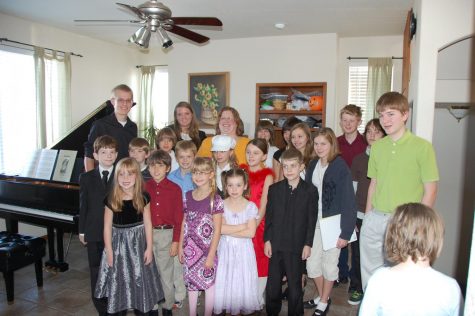
However, a little later, when she moved to Erie, she fell on another dark time in her life. It was after her mom died, and she felt this overwhelming grief that she couldn’t shake. Heather said, “I was a performer that didn’t have a stage.” She felt scared of her Carpal Tunnel and Tennis Elbow. “I was afraid of it. I was afraid of the pain.” Luckily she had her cousin Zach helped her through it.
Zach was in college at the time. She was struggling with her pain and fear, but Zach was there through it all. He had started working at her piano studio, and he was an amazing singer. She started singing again after almost 20 years of not doing so. They both played the piano, and one would accompany while the other sang and vice versa. Music became her sanctuary. They would each teach their students, and after they were gone, they would sing together. She felt like she did in high school when she would feel agitated or upset but when she get home her music would center and calm her. “I could find peace in singing that I couldn’t find anywhere else.” While she taught piano, she would feel peace, but then the students would leave and she could feel the grief again. Then she would sing with piano and take a break from the sadness for a while. As the months went by, Heather realized that she and Zach had something amazing. They decided to both get voice teachers. They got the same voice teacher, but Heather didn’t like her very much. After twenty years of telling herself she wasn’t good enough at singing, the teacher didn’t do anything to help build her confidence in singing that she had lost. They switched teachers about 5 months in and kept the different teacher for about 5 years.
Later, Zach started talking about how he had always wanted to be in musical theatre, so they both decided to join. Heather realized that she didn’t just have to be a pianist to have value as a musician. She was becoming very obsessed with theatre. The first show she did was The Secret Garden in Longmont. She met people in that show that she is still close friends with. She did sing, but she mostly played piano for the shows. Of course, all her playing comes at a price. She gets ultrasounds on her arms once a week, and it’s really expensive. She says that it’s all worth it because the joy that she gets from playing and sharing her music is more important to her than anything. There are some shows that don’t hurt her arms and there are some shows that do hurt her arms, but she never regrets it.
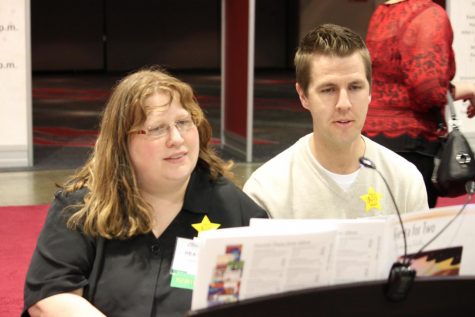
Heather has done many shows the past five years. At times, she had back to back shows and very exhausting weeks. What she loves about theatre is the people she does it with. “There’s nothing better than looking up from your score and seeing your band and knowing that you have their back and they have your back and you make this amazing music together and it all clicks. The actors are doing their thing and your whole job is to support them but without you there’s nothing. You’re an integral part of creating this magic for the audience with super talented singers and super talented musicians and you get to hang out with these people who become your life.” She loves getting to create a masterpiece with so many amazing people. She said, “I’m a better person because I know these people.”
Tragedy hit the home of one of her old friends that she did a show with. His name was Daniel, and he died from cancer 10 days after his wife gave birth. His wife is now alone with an infant and a two-year-old, and the theatre community has done an amazing job to raise money for the family for the children’s scholarship funds, hospital and living expenses, and just getting his wife back on her feet. “The outpouring of love and how people who’ve never met each other are coming together over this one human being is incredible to me. That’s what theatre people are about. How they’re different and yet they support each other and they’re there for each other and they love each other.” According to Heather, they’re genuine and real people.
Zach and Heather are now so close, and they’ve been on such an amazing musical journey the past five years together, and it doesn’t seem like they are going to stop anytime soon. Her love for music has completely changed her life in ways she had never anticipated. Music even changes the way she listens to music on the radio. Her darkest times have been when she stopped loving music, and she plans on never returning to that state again.
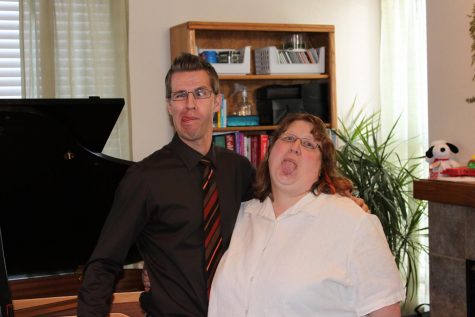
A link to Heather’s piano studio, My Piano Prodigy’s Facebook page.
https://www.facebook.com/My-Piano-Prodigy-140069692722024/







